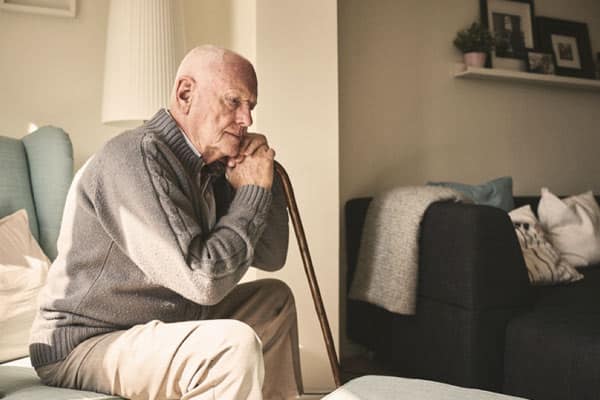As the days grow shorter and the seasons change ever so slightly in Florida, many people, especially older adults, experience a noticeable change in their mood and energy levels. This phenomenon is known as seasonal affective disorder (SAD), a type of depression that typically strikes during the late fall and winter months. It can be particularly challenging for older adults who may already face reduced mobility or illness, forcing them to spend more time indoors. Understanding the common symptoms of seasonal affective disorder in older adults can help loved ones provide practical strategies to effectively manage and prevent this condition.
Common Symptoms of SAD in Older Adults
- Persistent Sadness: One of the hallmark symptoms of seasonal affective disorder in older adults is a persistent feeling of sadness or hopelessness that lasts for days or even weeks.
- Fatigue and Low Energy: Older adults with SAD often experience increased fatigue and low energy levels, making it harder for them to engage in their daily activities.
- Social Withdrawal: SAD can lead to social isolation as individuals may lose interest in socializing and prefer to stay indoors.
- Changes in Appetite and Weight: Some older adults with SAD may overeat, especially foods high in carbohydrates, leading to weight gain.
- Sleep Disturbances: Depression can disrupt sleep patterns, causing insomnia and/or excessive sleepiness during the day.
- Difficulty Concentrating: Older adults with SAD may struggle to concentrate or make decisions.
What Are Some Strategies to Manage and Prevent Seasonal Affective Disorder in Older Adults?
- Light Therapy: Light therapy, or phototherapy, involves exposing individuals to bright, artificial light that mimics natural sunlight. This can help regulate mood and improve sleep patterns. Encourage older adults to sit in front of a light therapy box for 20-30 minutes each morning. Alternatively, encourage a loved one to spend time outside each day, even during the winter months, soaking up some Florida sunshine.
- Increase Physical Activity: It is well documented that exercise can boost mood and reduce symptoms of depression. Support loved ones in engaging in regular physical activity, even if it's just a short walk outside or simple stretching exercises indoors to help alleviate the symptoms of depression. Group activities or classes can also provide a social component, combating isolation.
- Maintain a Healthy Diet: A well-balanced diet can significantly impact mood and energy levels. Older loved ones should consume a variety of fruits, vegetables, lean proteins, and whole grains, limiting the intake of processed foods and sugary snacks, which can cause blood sugar levels and mood swings to fluctuate.
- Create a Supportive Environment: For older adults who may spend more time indoors, it's crucial to create an environment that promotes well-being. Ensure their living space is well-lit and comfortable. Consider decorating their home with cheerful colors and adding plants to bring a touch of nature indoors.
- Stay Connected: Social interaction is vital for mental health, which makes staying connected with family and friends crucial. Arrange regular phone calls, video chats, or visits to combat feelings of loneliness and isolation.
- Seek Professional Help: If SAD symptoms persist or worsen, it's essential to seek professional help. A healthcare provider can assess the situation and recommend appropriate treatment options, such as counseling, medication, or other therapies tailored to the individual's needs.
Home Care Can Help
Seasonal affective disorder can be particularly challenging for older adults, who may already face mobility issues or illness. In-home care services from the referred care providers at American, Advocate, and Whitsyms In-Home Care can help older loved ones stay healthy and maintain social connections through the winter season and beyond.
Contact us to learn more about how a referred care provider can help older adults alleviate feelings of SAD while getting the care they need in the comfort of their homes. Click the link to the location nearest you below:
- American In-Home Care – Serving North, Central, and West Coast of Florida
- Advocate In-Home Care – Serving Southeast and Southwest Florida
- Whitsyms In-Home Care – Serving Southeast and Southwest Florida
State of Florida License and Registration Numbers: 30211518, 30211651, 30211295, 30211390, 30210978, 30211293, 30211382, 30211504, 30211733, 30211535, 30211531, 30211710, 30211709, 30211045, 5661


